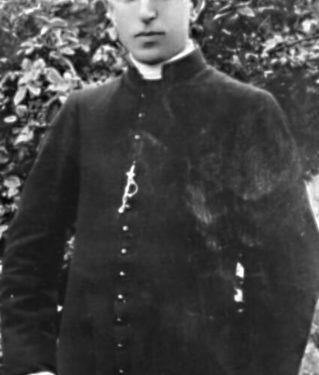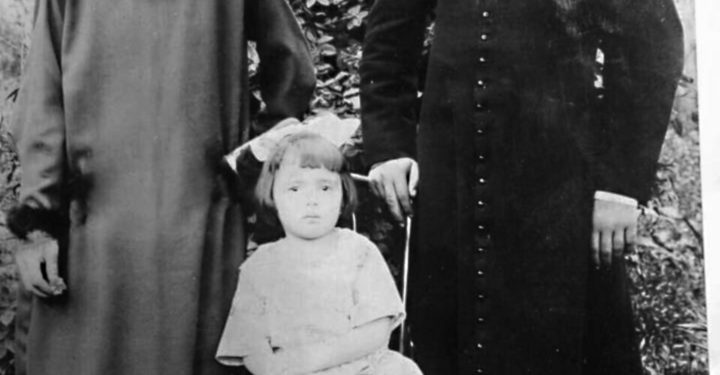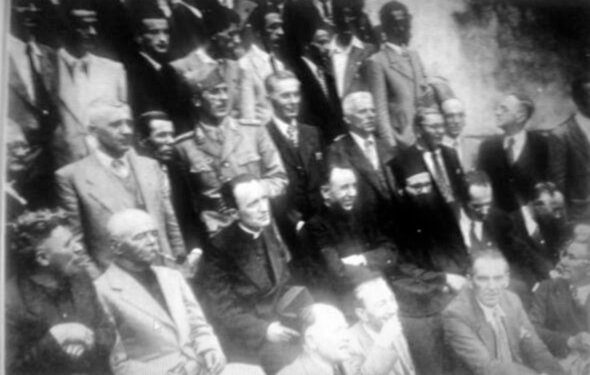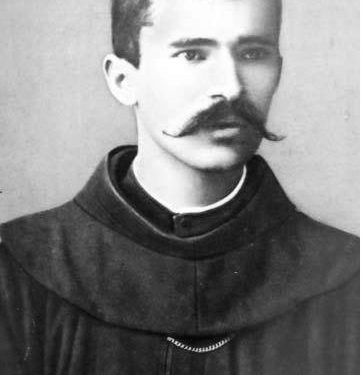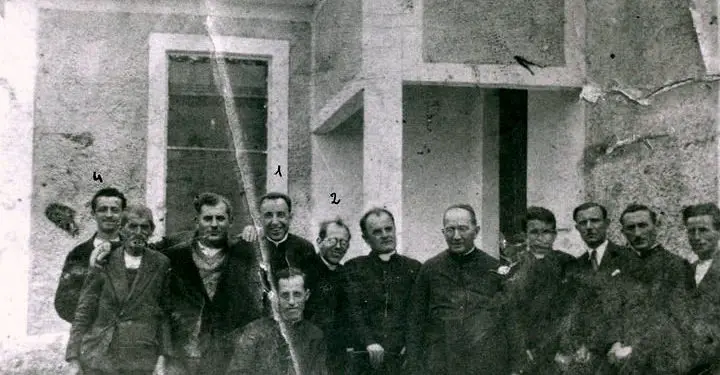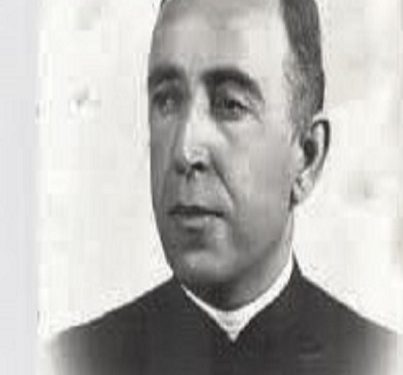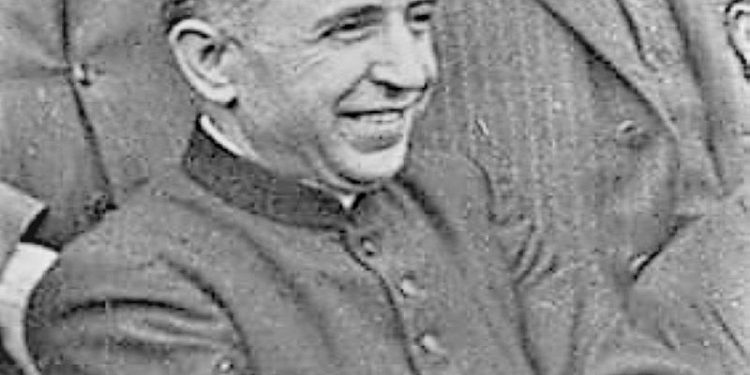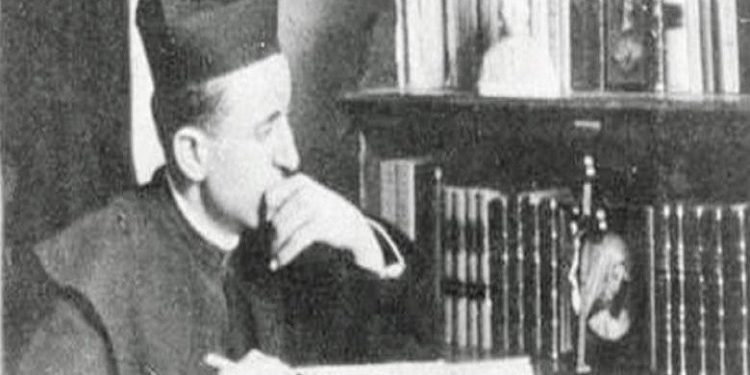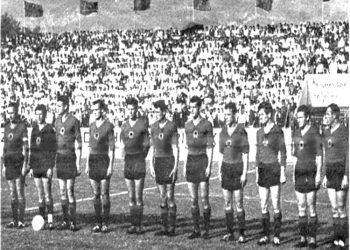NIKOLLË LOKA
Av. ALFDRED DUKA
NIKOLIN KURTI
Part thirty seven
– THE FORECAST MURDER OF A CLERGYMAN OF THE RENAISSANCE –
Memorie.al/ Before we begin to briefly analyze the investigative and judicial file in charge of the defendant Shtjefën Kurti and others, for the reader we will make a parenthesis of the law and its history in human society, with the goal of coming to our criminal and procedural law, from its beginnings and throughout the years of the dictatorship.
Continues from last issue
Statements of former prosecutors and judges who sentenced Dom Shtjefën Kurti to death
The reflection of former judge Paskal Haxhi
“The case of the priest in Gurëz. I remember that the priest of the village of Gurëz was accused of sabotaging the economy of the cooperative, of agitation and propaganda against the government and theft of socialist property. I judged and decided to return the case for completion of investigations. He was religiously educated and the archpriest of the important Catholic Church of St. Ndou in Laç. He, of course, did not accept the accusation and declared that he was a victim of the fierce class struggle, like many others. -‘But know Mr. President, that this war for the elimination of opponents is similar to the war we waged in our time against communism. This war, which we waged, was not followed by the disappearance of the opponents, but by their multiplication. The same will happen with the war against us by the communists; therefore, this war multiplies the opponents. And this will happen until the overthrow of this system’. When the completed file arrived, I had been transferred to the High Court in Tirana. The deserted and innocent priest was sentenced to death by my successor”.
This is a passage from the book of memories of the professor of the Faculty of Law, Paskal Haxhi. As the first judge who came into contact with this file, after studying it, he performed a procedural action, which despite being provided for in the Criminal Procedure Code of the time, constituted a very unusual case, especially for those “crimes” that were foreseen as “crimes against the state”. This procedural action of the judge who was supposed to judge that case, despite the fact that for reasons beyond his control, he failed to judge it, is enough to prove the groundlessness of at least the accusation of “sabotage”, rose against Dom Shtjefën Kurti, which, as we have emphasized many times above, constituted the “legal means” to shoot him.
Here we can make a guess, which, despite the lack of evidence to declare it out loud, turns out to be proven that perhaps the transfer of Paskal Haxhi was related to the fact that he did not present the appropriate guarantees, to fulfill the party’s order regarding the death sentence of the priest Dom Shtjefën Kurti! We have pointed out with evidence that in the trial of the case in charge of Dom Shtjefën Kurti, the party and of course the leader Enver Hoxha, had “sacrificed” with manual labor in the village of Gurëz, the party’s senior official, Vait Lama, for “following” and supervising this judicial process! This proven fact certainly did not happen often. This fact makes us understand that that process was not common, but very important. From here we come to the logical conclusion that the party was looking for a safe judge to shoot Dom Shtjefë Kurti, and this judge might not be Paskal Haxhi.
The phrase of Dom Shtjefën Kurti, addressed to the president of the district court of Kruja, remained in Mr. Haxhi’s memory for nearly half a century: “But know Mr. chairman, that this war for the elimination of opponents…”, beyond his innocence, demonstrates human and manly dignity, warning his punisher that he knew their intentions to sentence him to death, but that one day, which would not be far, he, the punisher, would find himself on the wrong side of history and truth! The closing phrase of the former judge of that case: “My successor condemned the desolate and innocent priest to death”, constitutes a direct act – accusation against the Justice system, as far as it can be called such that of the time of the dictatorship, but also of his successor, who more than a judge, had been a dirty tool of the dictatorship, without excluding here the entire chain of judicial steps, concluding, the Presidium of the People’s Assembly, who had the last word on those sentenced to death. Through this memory found in his book, Paskal Haxhi exposed the regime that he himself had served. Maybe that’s what he could do!
SECOND CONVICTION OPERATIVE FILE
Secret
Check sheet in the File Register
Please check and let us know if the person listed below appears registered in the operational records:
Surname: Kurti
Name: Shtjefën
Paternity: Jak
Date of birth: 1898
Place of birth: Prizren
Place of Residence: Gurëz village, Krujë district.
Work center: Agricultural cooperative “Ndoc Deda” Milot.
Profession: Former priest and now worker
Nationality: Albanian
Citizenship: Albanian
Operative Workshop
Qemal Karamani
Head of P. Interior Branch
Dhosi Pecani
We inform you that the person requested by you has been
Thanas Doko
Kruje on 16.4.1970
DOCUMENTS THAT SERIOUSLY COMPROMISE THE JUDGMENT OF THE COURT’S OFFICE
Addendum to point 7-R Meeting day dt. 23/9/1971 at 11.00
Relation: On the death sentence Shtjefën Kurti
Born in Prizren – 73 years old – Catholic priest, with higher Theological education.
Kruja district court with decision no. 54 dt. 31.7.1971, sentenced the defendants: Shtjefën Kurti to death by shooting, Bardhok (Mark) Nikolla to 18 years of imprisonment, Pjetër Biba to 13 years of imprisonment, Zef Nishi to 14 years of imprisonment, Agostin Preçi to 12 years of imprisonment, Fran Ndocin to 14 years of imprisonment, for the crime of sabotage and propaganda agitation against the popular government , while Ndue Letin is sentenced to 10 years in prison, for the crime of systematic embezzlement of socialist wealth and propaganda agitation against popular power.
It was proven during the trial that the above was a Catholic clergyman, convicted in 1947 by the Military Court of Tirana with 20 years of imprisonment, as an accomplice in the traitorous group of Sami Qeribashi. After serving his sentence, he was sent as a cleric to the village of Gurëz in the district of Kruja.
Protected with deep hostility against the government, immediately after the good revolutionary measures against religion, he again threw himself into such an activity. In the conversations with the superior judges and the witnesses questioned by the court, he has darkened our socialist realism, and has spoken about the low standard of living in us, especially about the impoverished state of the village, considering the cooperative agricultural system as its cause. He said that there is no freedom in our country that the measures taken against religion are a “denial of the last bit of freedom” and at the same time, he boasted about life in capitalist countries. Wishing for the overthrow of popular power, he greeted the so-called “Prague Spring”, and wished that it would greet our country as soon as possible.
After it was noticed that the other convicts were embezzling to the detriment of the agricultural cooperative with the intention of sabotage, very soon he became an inspirer and promoter of this activity, an experienced leader of it. In conversations from time to time, he directed the convicts Bardhok, Pjetër and Zef, that apart from them, they should hire other people to steal, because in this way the income of the cooperative would decrease, the people would rise up and the cooperative would be destroyed.
He added that by making the people dissatisfied and revolting against the government, foreign intervention to overthrow it would be justified. In order to further organize this activity, in 1969, they organized a dinner in the apartment of the convict Shtjefën Kurti, where it was decided to increase the number of thefts and other sabotage activities.
Indeed, after this, in the cooperative, an increase in embezzlement and damage to agricultural products is observed, as well as an increase in persons involved in theft. To justify this hostile activity, he told the other defendants that if they stole from the agricultural cooperative, they did not commit any sin and it was not forbidden by religion, so they took their labor and sweat, which was unjustly kept from them.
The above decision has been upheld by the criminal panel of the Supreme Court.
People’s Republic of Albania
Presidium of the People’s Assembly
Edict
For forgiveness of punishments
In support of Article 58, point 7, of the Constitution,
Presidium of the People’s Assembly of the People’s Republic of Albania
Set:
- Filip Anastas Gjergos, from Berat, convicted by decision no. 35 dt. 28/12/1963 of the Berat district court, the remainder of the sentence is forgiven.
- Nuri e Rushit Kastrati, from Yugoslavia, living in Kavaja, convicted by decision no. 266 dt. 27/10/1957 of the Supreme Court, to pardon the remainder of the sentence.
- Memory of Haxhi Okës, from the floor. Ponçare-Korçe, convicted by decision no. 4 dt.11/4/1970 of the Military College of the Korçë District Court, the remainder of the sentence be forgiven.
- Dane Feta Amollarit, from the floor. Barç-Skrapar, convicted by decision no. 9. dt. 9/5/1959 of the Berat district court, the remainder of the sentence is forgiven.
- Ded Shyt Ndoje, from the floor. Gjegjan-Pukë, a resident of Shkodër, convicted by decision no. 4 days 31/I/1969 of the Shkodër district court, the remainder of the sentence is forgiven.
- Gjon Pjeter Dedas, from the floor. Thumanë-Krujë, convicted by decision no. 16 dt. 17/5/1969 of the Krujë district court, the remainder of the sentence is forgiven.
- Nikollë Dod Bibës, from Shkodra and resident in Pukë, convicted by decision no. 14 dt. 9/7/1969 of the Pukë district court, the remainder of the sentence is forgiven.
- Sali Qemal Salirajt, from Vlora, convicted by decision no. 6 dt. 28/5/1969 of the Durrës district court, the remainder of the sentence is forgiven.
- Fitim Musa Dacit, from Tirana, convicted by decision no. 223 dated 6/11/1970 of the Tirana district court, the remainder of the sentence is forgiven.
- Xhafer Sulejman Hodës, from the floor. Cernalevë-Kukës, convicted by decision no. 316 dt. 18/12/1969 of the high court, the remainder of the sentence is forgiven.
- Xhavit Hamdi Rubjekës, from Kavaja, convicted by decision no. 13 dt. 3/6/1966 of the Durrës district court, the remainder of the sentence is forgiven.
- Dylber Ramis Çarkanjit, from the floor. Gjerbës-Skrapar and a resident of Tirana convicted by decision no. 232 dt. 15/5/1969 of the high court to forgive the remainder of the sentence.
- Bejto Lan Ulajt, from Shkodra, convicted by decision no. 12 dt. 24/6/1969, of the Shkodër district court, to be forgiven the remainder of the sentence.
- Bedri of Maksut Rustemi, from Libohova-Gjirokatër, convicted by decision no. 2 dt. 1/2/1965 of the Gjirokatër district court, the remainder of the sentence is forgiven.
- Gjon Nik Trinës, from floor Prekal and resident of Shkodër, convicted by decision no. 78 dt. 10/10/1964 of the Shkodër district court, the remainder of the sentence is forgiven.
- Dhimitri Konstandin Ballabanit, from the floor. Kosina-Përmet, convicted by decision no. 30 dt. 20/7/1965 of the Vlora district court, the remainder of the sentence is forgiven.
- Enver Ismail Nekiut, from floor Qinam – Cologne, convicted by decision no. 17 dt. 30/10/1970 of the Kolonje district court, the remainder of the sentence is forgiven.
- Remembering Jonuz Bilbilit, from the floor. Mjedë-Shkodër, convicted by decision no. 88. dt. 24/5/1971 of the Shkodër district court, the remainder of the sentence is forgiven.
- Bajram Ramadan Kirmeshtės, from Shkodra, convicted by decision no. 186 dt. 25/11/1970 of the Shkodër district court, the remainder of the sentence is forgiven.
- Sinan Vesel Elezit, from the floor. Larushk-Kruje, convicted by decision no. 39 dt. 15/6/1971 of the Krujë district court, the remainder of the sentence is forgiven.
- Vasilika Arqile Madhit, Korça branch, convicted by decision no. 28 dt. 20/4/1971 of the Korçë district court, the remainder of the sentence is forgiven.
- Ferid Gani Varoshi, from Kruja, convicted by decision no. 50 dt. 20/7/1964 of the Tirana district court, the remainder of the sentence is forgiven.
- Lekë Pjetër Lleshit, from Qafë-Mli-Pukë, convicted by decision no. 15 dt. 7/8/1970 of the Pukë district court, the remainder of the sentence is forgiven.
- Lutfi Qasim Kucajt, from the floor. Pobrat, a resident of Gradishte in Lushnje, convicted by decision no. 13. date 5/7/1963 of the Berat district court, the remainder of the sentence be forgiven.
- Capt. Abedin Grezdës, from Kosovo and resident in Tirana, convicted by decision no. 5 dt. 6/2/1964 of the Tirana district court, the remainder of the sentence is forgiven.
- Lirije Ramadan Zenelajt, from Kopliku-Shkodër, convicted by decision no. 79 dt. 8/5/1971 of the Shkodër district court, the remainder of the sentence is forgiven.
- Neki Ismail Çobës, from the floor. Mifol-Fier, convicted by decision no. 79 dt. 13/7/1971 of the Fier district court, the remainder of the sentence is forgiven.
- Hasan Teki Koçiut, from Hormova-Tepelene, resident in Kavaja, convicted by decision no. 32 dt. 5/8/1971 of the Lushnje district court, the remainder of the sentence is forgiven.
- Angel Jani Boboshtices, from Korça, convicted by decision no. 20 dt. 1/3/1970 of the Korçë district court, to change the sentence to 1 year of correctional work with the suspension of 1/6 of the salary.
- Isa Bajram Dullës, from Libofsha-Fier, convicted by decision no. 7 dt. 7/7/1971 of the Fier district court, to change the sentence to 1 year of correctional work with the suspension of 1/6 of the salary.
- Frosina Llambi Bulgareci, from Korça, convicted by decision no. 26 dt. 10/4/1871 of the Korçë district court, to change the sentence to 1 year of correctional work with the suspension of 1/6 of the salary.
- Ilirjan Mehmet Lamajt, from Patosi, resident in Berat, convicted by decision no. 3 dt. 14/2/1970 of the Berat district court, to be forgiven 4 years of the sentence.
- Ahmet Ibrahim Lleshit, from the floor. Remull-Mat, convicted by decision no. 27 dt. 1/3/1962 of the Tirana military court, to be forgiven 4 years of the sentence.
- Tefik Selman Vendreshesha, from the floor. Poor people living in Lushnje, convicted by decision no. 6 days 13/2/1964 of the Durrës district court, to be forgiven 2 years of the sentence.
- Refik Izet Pitarkës, from Dibra and resident in Tirana, sentenced with no. 161 dt. 29/7/1969 of the Tirana district court, to be forgiven 2 years of the sentence.
- Fetah Rexhep Hysës, from the floor. Grykë-Nok Dibër, convicted by decision no. 18 dt. 26/9/1966 of the Tirana district court, to be forgiven 2 years of the sentence.
- Shaban Myslim Jançellarit, from the floor. Vloçisht-Korçë, convicted by decision no. 41 dt. 1/10/1964 of the Korçë district court, to be forgiven 2 years of the sentence.
- Reshat Agush Metës, from Çameria and resident in Fier, convicted by decision no. 9 dt. 19/3/1963 of the Vlora court, to be forgiven 2 years of the sentence.
- Arif Tafil Qoshit, from kat. Zgoxhde-Librazhd, convicted by decision no. 20 dt. 9/11/1967 of the Durrës district court, to be forgiven 2 years of the sentence.
- Myzejen Zenel Sojat, from Zaloshnja and resident in Dobrushë-Skrapar, convicted by decision no. 234 dt. 29/8/1966 of the Tirana district court, to forgive the remainder of the obligation.
- Mitro Filip Vasit, from Tirana, convicted by decision no. 458 dt. 20/X/67 of the Tirana district court, to forgive the remainder of the obligation.
- Hysen Mehmet Hamzait, from kat. Pollozhan-Dibër, convicted by decision no. 14 dt. 26/4/1957 of the Peshkopi district court, to forgive the remainder of the obligation.
- Arshin Skënder Fejzos, from the floor. Drenovë-Berat, convicted by decision no. 8 dt. 12/8/1964 of the Berat district court, to be forgiven the remainder of the obligation.
- Faik Reshit Kaza, from the floor. Steferan-Elbasan, convicted by decision no. 112 dt. 29/7/1965 of the Elbasan district court, to be forgiven the remainder of the obligation.
- Aleksandra Kosta Laros, from the floor. Goranxi-Gjirokastër, convicted by decision no. 26 dt. 29/8/1969 of the Gjirokastër district court, to forgive the remainder of the obligation.
- Pandeli Kiço Doganit, from Gjirokastra, convicted by decision no. 19 dt. 26/4/1968 of the Gjirokastër district court, to forgive the remainder of the obligation.
- Hilmi Met Sulo Hoxha, from Shkodra, convicted by decision no. 82 dt. 17/7/1952 of the Pukë district court, to forgive the remainder of the obligation.
- Beqir Nezir Krajes, from Shkodra, obliged by decision no. 1000 dt. 25/12/1969 of the Shkodër district court, to be forgiven the remainder of the obligation.
- Llambi Thimjo Maksakulit, from Delvina-Saranda, convicted by decision no. 7 dt. 24/2/1955 of the Gjirokatër district court, to forgive the remainder of the obligation.
The Ministry of Internal Affairs and the Supreme Court are charged with the implementation of this decree, which comes into force immediately. Memorie.al
Tirana, on 23/9/1971
For the Presidium of the People’s Assembly of the People’s Republic of Albania
Secretary: Chairman:
(Bilbil Klosi) (Haxhi Lleshi)
The next issue follows




